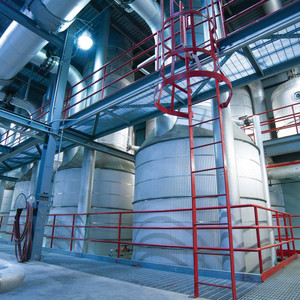Solenis develops scale inhibitor for ethanol plant evaporators

Solenis
June 3, 2015
BY Solenis
Solenis, a leading global producer of specialty chemicals, has launched its Polystabil AS4535 scale inhibitor specifically designed to help fuel ethanol producers control scale in their evaporators, thereby improving heat transfer and reducing downtime while still meeting regulatory guidelines for chemical usage.
The new product was introduced at the 2015 International Fuel Ethanol Workshop & Expo in Minneapolis, Minnesota.
Inorganic hard scales that form in fuel ethanol evaporators can reduce plant efficiency and profitability by increasing water and energy usage. The most widely used scale inhibitors for evaporators employ the continuous feed of polyacrylate chemistry. While these treatments can be effective, the concentration of polyacrylate allowed in the thin stillage stream is limited by the U.S. Food and Drug Administration and other international food administrations to 10 ppm, which is often too low of a dose to effectively control scale.
Advertisement
Advertisement
However, Solenis’ proprietary and patent-pending blended product starts working at a dosage level below traditional polyacrylate chemistries and allows higher dosages, up to 22.6 ppm, while still meeting regulatory requirements, thereby making it more effective than conventional technologies.
“Today’s fuel ethanol processes tend to generate more scale than ever before,” said Allen Ziegler, global biorefining marketing director. “This novel product performs significantly better than polyacrylate chemistries and allows fuel ethanol plants to split feed the chemistry, for example at the front of the evaporators to treat the whole system, and then with an additional dosage before problem areas, such as the evaporator where inorganics are concentrated. This results in improved heat transfer efficiency and a reduced need for cleaning and related downtime. Fuel ethanol operations using Polystabil AS4535 scale inhibitor are therefore able to maintain maximum efficiency while staying within regulatory limits.”
Advertisement
Advertisement
“This is one more example showing our commitment to serving fuel ethanol customers,” said John Panichella, president and CEO. “With nearly 100 years of application experience in water treatment and process chemistries we continue to invest in the research and development of new products for this industry so that we can proactively help our customers remain profitable while addressing their uncertainty around evolving regulations.”
The new scale inhibitor represents one of many solutions recently developed for fuel ethanol producers by Solenis, which was previously known as Ashland Water Technologies. Other process and water treatment innovations include FDA-approved corn oil extraction aids for both disk-stack and tricanter systems; a proprietary control system that allows for around-the-clock surveillance and control of process and water treatment programs; a low-corrosion microbiocide for cooling water systems; and new antibiotic-free fermentation aids.
Related Stories
Neste and DHL Express have strengthened their collaboration with the supply of 7,400 tons (9.5 million liters) of neat, i.e. unblended, Neste MY Sustainable Aviation Fuel to DHL Express at Singapore Changi Airport starting July 2025.
CoBank’s latest quarterly research report, released July 10, highlights current uncertainty around the implementation of three biofuel policies, RFS RVOs, small refinery exemptions (SREs) and the 45Z clean fuels production tax credit.
The U.S. Energy Information Administration maintained its forecast for 2025 and 2026 biodiesel, renewable diesel and sustainable aviation fuel (SAF) production in its latest Short-Term Energy Outlook, released July 8.
XCF Global Inc. on July 10 shared its strategic plan to invest close to $1 billion in developing a network of SAF production facilities, expanding its U.S. footprint, and advancing its international growth strategy.
U.S. fuel ethanol capacity fell slightly in April, while biodiesel and renewable diesel capacity held steady, according to data released by the U.S. EIA on June 30. Feedstock consumption was down when compared to the previous month.
Upcoming Events










